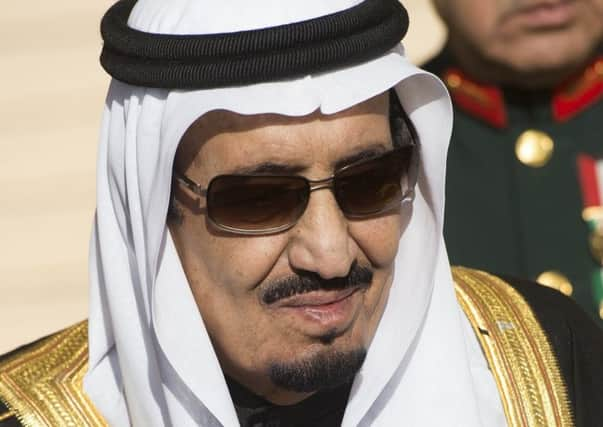Saudi’s king shifts power to next generation


The appointments, announced in a decree from the royal court, thrust a new generation of Saudi princes into the line of succession and map out the future of the throne for potentially decades to come.
The post of crown prince secures Prince Mohammed bin Nayef, 55, as the most likely successor to the king. The prince, who is also the interior minister, is widely known internationally as Saudi Arabia’s counter-terrorism czar and was previously also deputy crown prince.
Advertisement
Hide AdAdvertisement
Hide AdThe prince becomes the first from among his generation to be elevated to such a high position – first in line to the throne. He has survived several assassination attempts, including one in 2009 by al-Qaeda. He takes over the post of crown prince from Prince Muqrin.
The king’s son, Prince Mohammed bin Salman, has been appointed deputy crown prince. He is believed to be around 30 and is also the country’s defense minister. As deputy crown prince, he is essentially seen as second in line to the throne.
The newly appointed crown prince and deputy crown prince are both from among a generation of grandsons of Saudi Arabia’s founder, the late King Abdul-Aziz Al Saud, whose sons have passed power among one another – from brother to brother – since his death in 1953.
The royal decree said that the appointments were made in line with the kingdom’s founding principle of “continuity on the basis of service to faith, the nation and the people, and what is good for its loyal people”.
New crown prince Mohammed bin Nayef will continue to oversee the country’s police force and border guards as interior minister. As crown prince, he will also serve as deputy prime minister. His late father was the elder full-brother of 79-year-old King Salman.
The moves come as the US-allied monarchy is facing challenges, including creating millions of jobs for its mostly young population, low oil prices that have forced the country to dig into its massive financial reserves, and security threats both internally from terrorist groups and externally along its borders with Iraq and Yemen.
Since assuming the throne after the death of his half-brother King Abdullah in January, the new monarch has presided over a more proactive foreign policy, including Saudi-led airstrikes in March against Shiite rebels in Yemen. Prince Mohammed bin Salman will remain defence minister as he takes on the title of deputy crown prince.